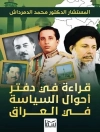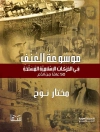This book is about the ongoing transition of fisheries governance, from top-down command and control towards a more transparent and participatory form. It focuses on the emergence of research practices and advice frameworks that allow co-creation of common knowledge bases for management. Drawing from 8 years of research in GAP, a two-stage 7th framework EU project, the book offers a critical examination of how knowledge practices in fisheries governance are changing. The entry point for this research is a series of practical experiments in the unchartered terrain of collaborative research. To gain insight into the ongoing transition in European fisheries management, GAP initiated and carried out 13 Case Studies in different settings across Europe. In each case study, a team of fishers and marine scientists worked together to identify, plan and implement research projects intended to make a difference. The cases vary. They take on different management issues and shape the collaborationsin different ways. The extent to which they succeed in realizing their objectives also differs. They are all contributing important insights into the possibilities of co-creating knowledge for management purposes. The book delves into the individual experiences of each case study as well as the lessons they contribute as a whole. The examination concludes that while research partnerships are not always easy to establish, they are an important step towards better fisheries governance. Without a common knowledge base for fisheries governance, co-created through collaborative research practices, sustainable fisheries will remain out of reach.
Spis treści
Chapter 1. Bridging the Ggap. Experiments in the Heart of the Transition Zone (Mackinson and Holm).- Chapter 2. Knowledge for Fisheries Governance. Participation, Integration and Institutional Reform (Linke et al).- Chapter 3. Fishermen and Scientists in the Same Boat. A Story of Collaboration in the UK South Devon Crab Fishery (Pearson, et al.).- Chapter 4. Getting Choosy About Whitefish in Lake Vättern. Using Participatory Approaches to Improve Fisheries Selectivity (Sandström, et al.).- Chapter 5. Understanding Fishermen-Scientist Collaboration in Galician Small-Scale Fisheries (NW Spain). Validating a Methodological Toolbox Through a Process-Oriented Approach (Vidal, et al.).- Chapter 6. Information is the Jam of the Western Baltic Herring Sandwich. Bridging Gaps Between Policy, Stakeholders and Science (Clausen, et al.).- Chapter 7. Aiming for By-Catch. Collaborative Monitoring of Rare and Migratory Species in the Wadden Sea (Wätjen and Ramírez-Monsalve).- Chapter 8. The Italian Job. Navigating the (Im)perfect Storm of Participatory Fisheries Research in the Northern Adriatic Sea (Raicevich, et al.).- Chapter 9. Trapped in the TAC Machine. Making a Fisheries Based Indicator System for Coastal Cod in Steigen, Norway (Holm, et al.).- Chapter 10. When Fishermen Take Charge. The Development of a Management Plan for the Red Shrimp Fishery in Mediterranean Spain (Bjørkan, et al.).- Chapter 11. Does Slow-Burn Collaboration Deliver Results? Towards Collaborative Development Multiannual Multispecies Management Plans in North Sea Mixed Demersal Fisheries (Mackinson, et al.).- Chapter 12. Action Research in Tropical Tuna Purse Seine Fisheries. Thoughts and Perspectives (Airaud, et al.).- Chapter 13. From Planning for Society to Planning with Society. Integration of Coastal Fisheries into the Maritime Spatial Planning (Aps, et al.).- Chapter 14. Implementing the Landing Obligation. An Analysis of the Gap Between Fishers and Policy Makers in the Netherlands (Kraan and Verweij).- Chapter 15. Taking the Initiative on Maltese Trawl Industry Management. Industry and Science Collaboration on Identifying Nursery and Spawning Areas for Trawl Fisheries Target Species (Martin).- Chapter 16. People, Sharks and Science. What can it take for Industry-led Research to make a Difference to the Management of Elasmobranchs of Conservation Concern in UK waters? (Hetherington and Bendall).- Chapter 17. Bridging Gaps, Reforming Fisheries (Holm, et al.).- Chapter 18. Conclusion (Mackinson, et al.).
O autorze
Petter Holm is a professor in fisheries and resource management at Ui T – The Arctic University of Tromsø, Norway. His research interests include organizational conditions for collective choice; institutional change processes in the fisheries; fisheries governance; the mobilization of science in management decision making; fishermen’s ecological knowledge and the relationship between science and local knowledge. In GAP he has served as WP leader, together with Douglas C. Wilson Kongshøj, for the systematic investigation of the progress and performance of the GAP case studies.
Dr. Maria Hadjimichael’s interest lies in the study and understanding of the governance of the commons, particularly marine and coastal commons. Concerned about issues such as the ‘stealing of the seashore’ and ocean grabbing through neoliberal mechanisms, she has founded the website reclaimthesea.org. She worked as a postdoctoral researcher at the Innovative Fisheries Management Institute of Aalborg University in Denmark. Her Ph D (Bangor University, U.K.) explored the human dimension of the European fisheries governance. She worked on numerous interdisciplinary EU funded projects and conducted fieldwork in the UK, Spain, Denmark, Greece, Cyprus, the US and Chile.
Sebastian Linke is associate professor in Environmental Social Science at the University of Gothenburg, Sweden. He has studied the relationship between science and policy for sustainable development with a focus on EU fisheries and marine management. He is particularly interested in the roles of expertise in environmental politics and the co-creation of knowledge by scientists and other actors under new forms of environmental governance.
Dr. Steven Mackinson is the Chief Scientific Officer for the Scottish Pelagic Fishermen’s Association. He began his career working with Canadian herring fishermen in the mid-1990s, linking academic research with fishermen’s knowledge. Ever since he has been interested in building stronger collaboration among scientists, fishermen, and policy makers and was leader of the GAP projects. Prior to 2016, he worked for 17 years at the UK government marine research laboratory – the Centre for Environment Fisheries and Aquaculture Science (Cefas) where his research included using ecosystem models to investigate impacts of management and environmental change on ecosystems and fisheries, acoustic studies on fish, understanding the effects of renewable energy plans on fishermen.












